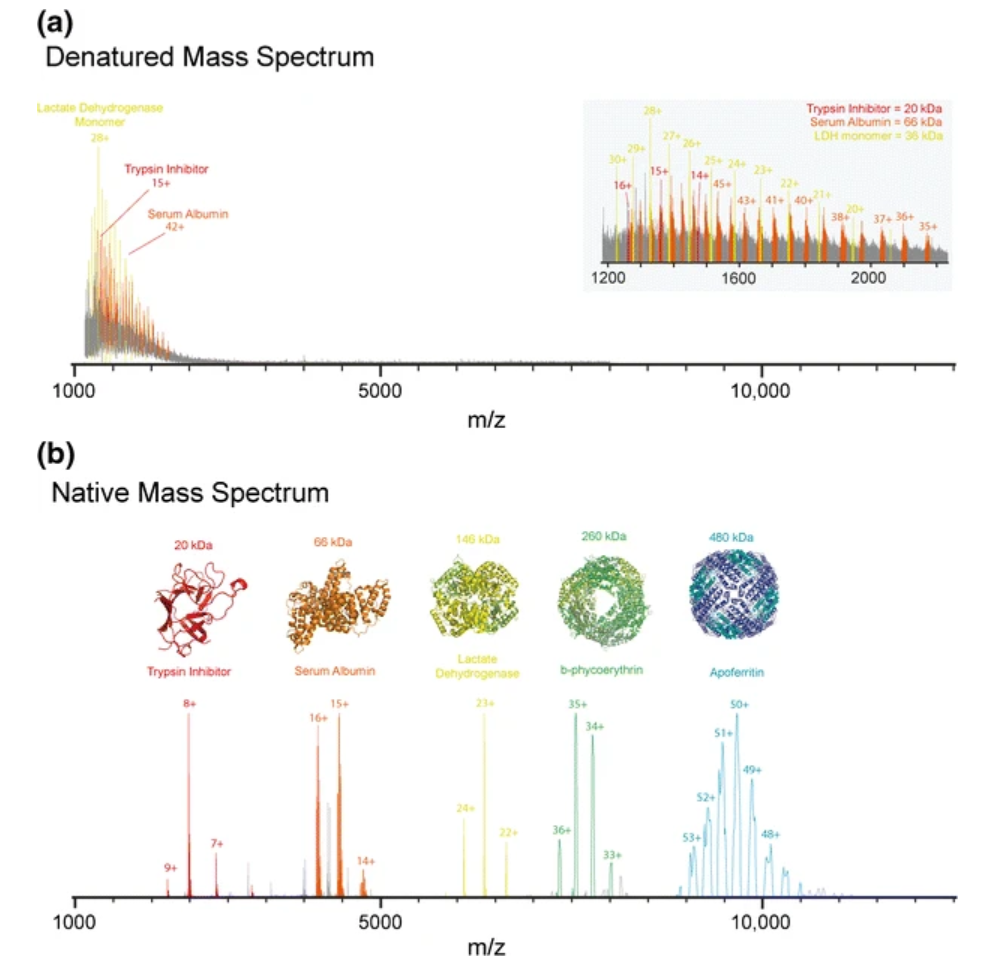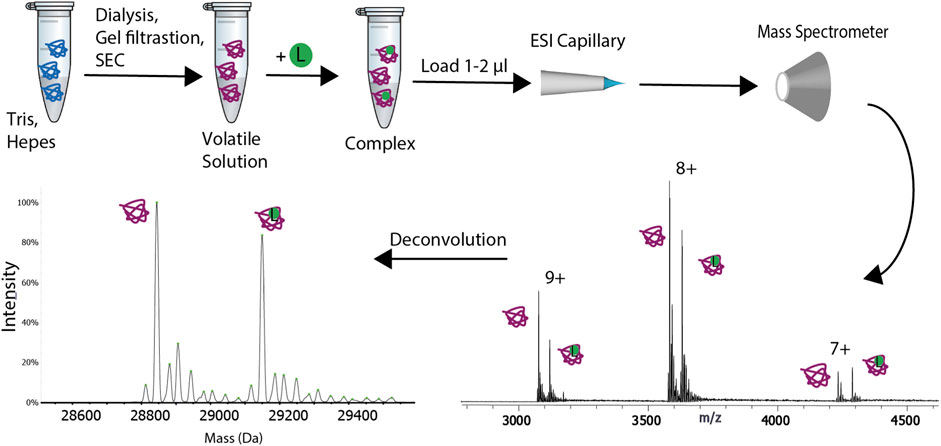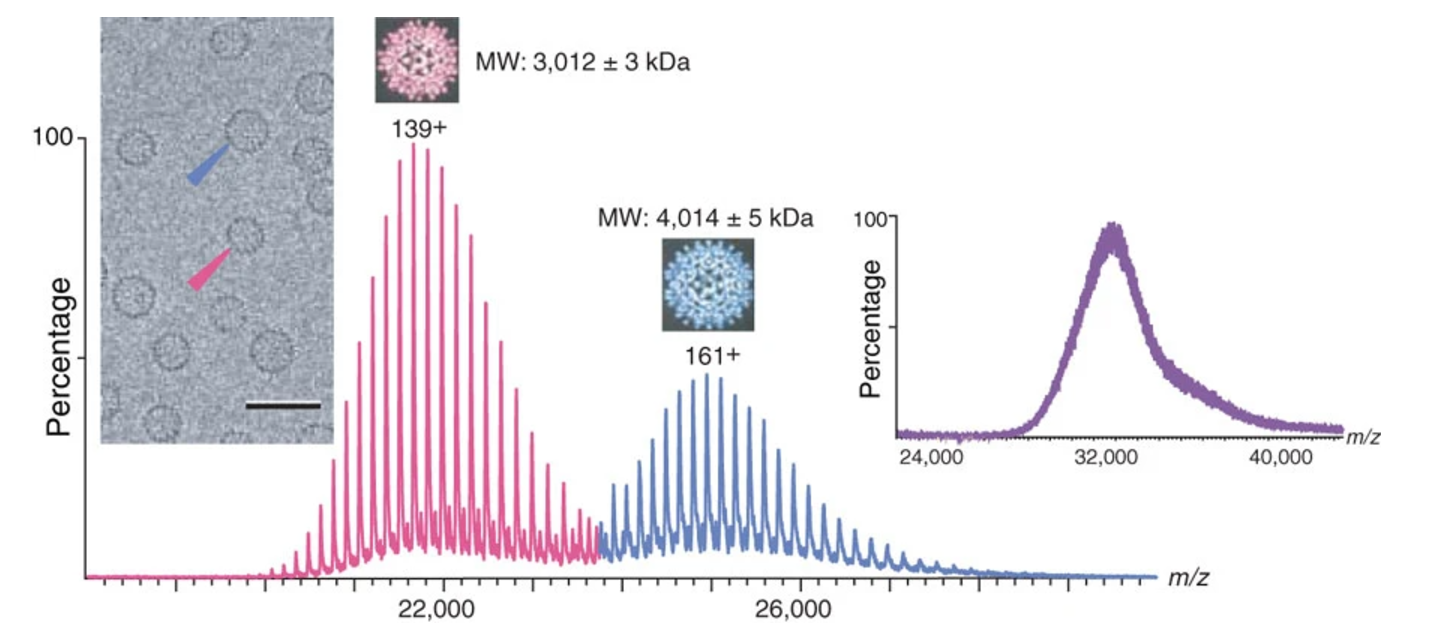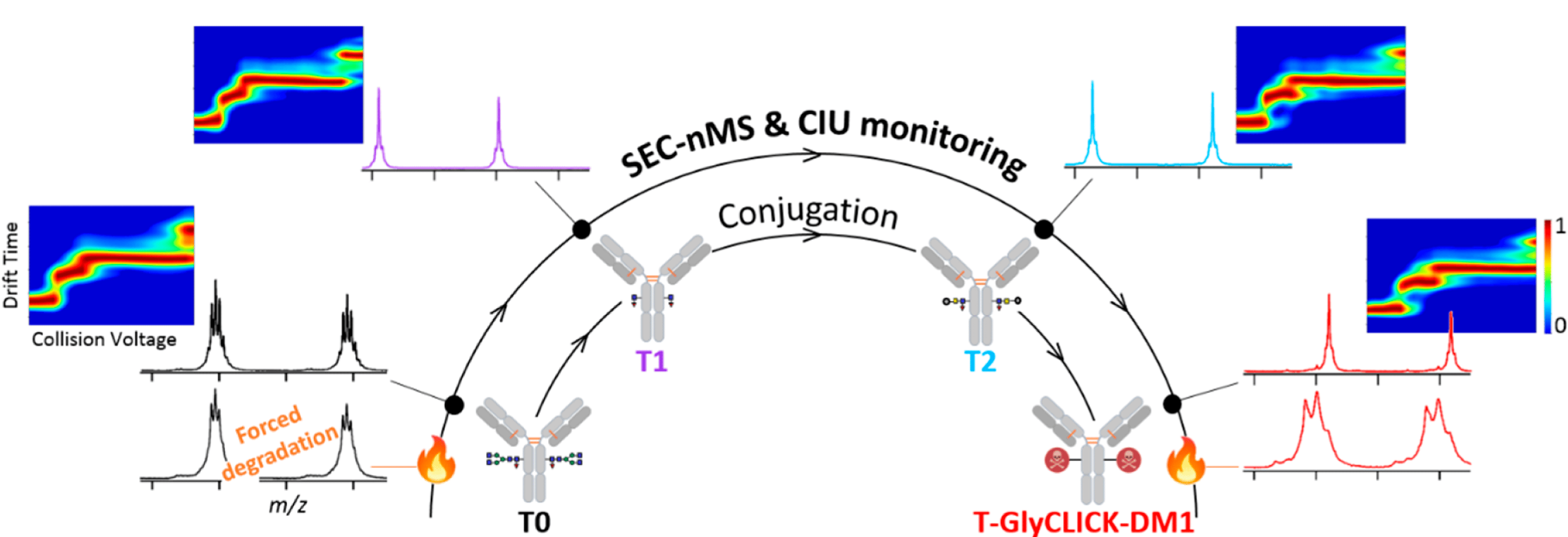Native Mass Spectrometry Service
Native Mass Spectrometry has revolutionized the way researchers study the structure and function of biological macromolecules. In traditional mass spectrometry, molecules are typically denatured in order to be analyzed, often losing important structural information. However, native mass spectrometry allows for the analysis of proteins and protein complexes in their natural, non-denatured state, preserving their native conformations and biological relevance. This capability makes Native Mass Spectrometry an invaluable tool in understanding complex protein-protein interactions, the quaternary structure of protein assemblies, and the molecular dynamics of biological processes.

Figure 1. Comparison of the MS Analysis of an Identical Protein Mixture under Denatured and Native MS Conditions
Native Mass Spectrometry Service provides direct information about the molecular weight, stoichiometry, and structural features of large, non-covalent complexes, without the need for labeling or extensive sample preparation. Moreover, Native Mass Spectrometry can analyze protein conformational states, detect subtle structural changes, and provide insights into protein-ligand interactions—all critical for advancing drug discovery, biomolecular research, and understanding disease mechanisms. By maintaining the native state of molecules throughout the analysis, native mass spectrometry delivers unparalleled accuracy and depth in structural biology, making it a powerful tool for a variety of applications.
Service at MtoZ Biolabs
Analysis Workflow

Gavriilidou, A. F. M. et al. Front Mol Biosci. 2022.
Figure 2. Schematic Representation of the Experimental Procedure for Native Mass Spectrometry
Service Advantages
1. Advanced Analysis Platform: MtoZ Biolabs established an advanced Native Mass Spectrometry Service platform, guaranteeing reliable, fast, and highly accurate analysis service.
2. Minimal Sample Preparation: Streamline workflows to preserve sample integrity and reduce preparation time.
3. Versatile Applications: Support a wide range of research areas, including drug discovery and structural biology.
4. One-Time-Charge: Our pricing is transparent, no hidden fees or additional costs.
5. High-Data-Quality: Deep data coverage with strict data quality control. AI-powered bioinformatics platform integrates all native mass spectrometry data, providing clients with a comprehensive data report.
Applications
1. Antibody Drug Conjugates (ADC) Analysis
Native mass spectrometry is a powerful tool for analyzing the composition and stoichiometry of antibody-drug conjugates (ADCs). It allows for the precise characterization of the drug-to-antibody ratio (DAR), confirming conjugation efficiency, and providing detailed insights into the stability and purity of ADCs. This is crucial for optimizing ADC design and ensuring therapeutic efficacy and safety.
2. Protein-Protein and Protein-Ligand Interactions
Native mass spectrometry facilitates the study of protein-protein and protein-ligand interactions by determining binding stoichiometry and analyzing the topology of these complexes. This information is essential for understanding molecular mechanisms, discovering drug targets, and optimizing the development of small molecules and biologics.
3. Viral Drug Development
Native mass spectrometry can be used to analyze viral capsids, determining their composition and structural features. By studying the assembly of capsid proteins and their interactions with host molecules, this technique provides valuable insights into virus biology and aids in the development of antiviral drugs. It also supports research on vaccine design by characterizing viral structures in their native state.
4. Molecular Weight Determination and Purity Analysis of Antibodies
Native mass spectrometry provides precise molecular weight determination of antibodies, including heavy and light chain characterization. It also enables the analysis of antibody purity by identifying heterogeneity and different isoforms. This information is critical for ensuring the quality and consistency of therapeutic antibodies in clinical development.
5. PTM Analysis
Post-translational modifications (PTMs) and molecular heterogeneity can be thoroughly analyzed with native mass spectrometry. It identifies and characterizes modifications such as glycosylation, phosphorylation, and acetylation, providing insights into how these changes affect protein function, stability, and interactions. This is particularly valuable in studying therapeutic proteins and monoclonal antibodies for quality control and optimization.
Case Study
1. Native Mass Spectrometry of Intact HBV Viral Capsids

Heck, A. J. Nat Methods. 2008.
2. Native Mass Spectrometry to Monitor Homogeneous Site-Specific Antibody-Drug Conjugates Synthesis

Deslignière, E. et al. Pharmaceuticals (Basel). 2021.
Deliverables
1. Comprehensive Experimental Details
2. Materials, Instruments, and Methods
3. Total Ion Chromatogram & Quality Control Assessment (project-dependent)
4. Data Analysis, Preprocessing, and Estimation (project-dependent)
5. Bioinformatics Analysis
6. Raw Data Files
At MtoZ Biolabs, we are committed to providing high-quality, reliable, and personalized analysis services. If you are interested in our Native Mass Spectrometry Service, please feel free to contact us.
How to order?







